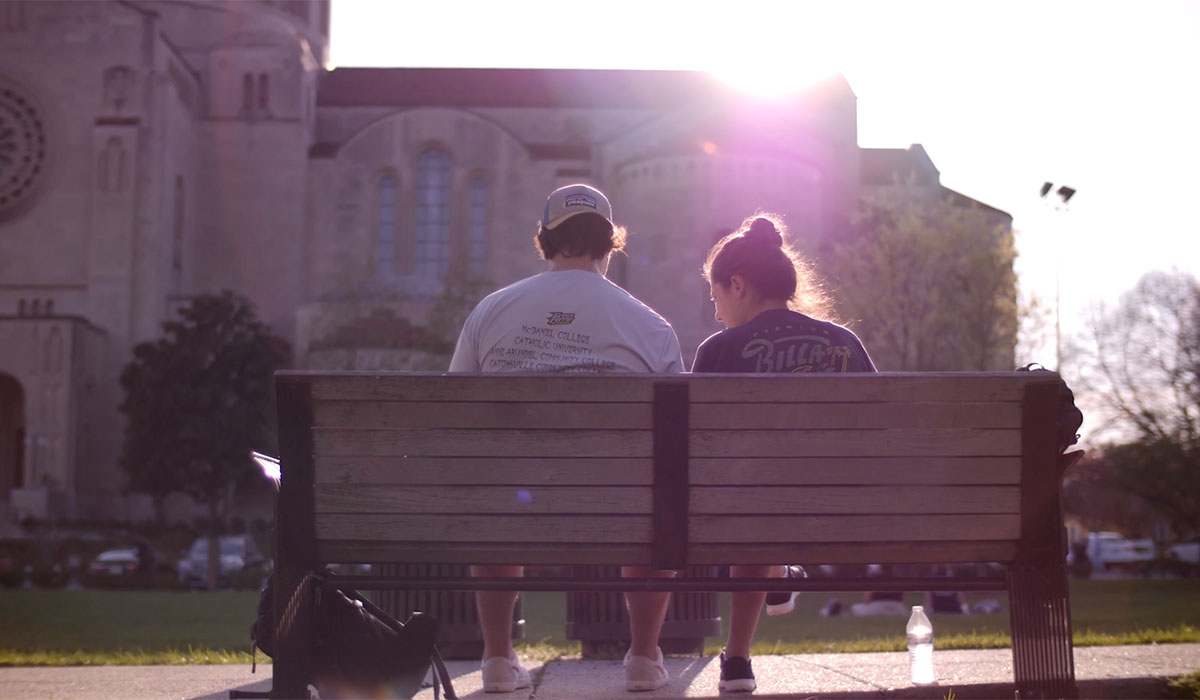Ethics and Integrity
As members of the Catholic University of America community, we adhere to the highest standards of moral and ethical behavior[i],[ii]. As current and future engineering professionals, we hold ourselves accountable for our personal and professional actions and endeavor in all things to be worthy of the trust of our peers, our community, and the public that our profession serves.
Freedom of expression and diversity of viewpoints are critical to the open exchange of ideas for the advancement of human knowledge and human flourishing. The College of Engineering, Physics, and Computing welcomes students, faculty, and staff from around the world, and is enriched by the contributions of every member of our community. We treat all individuals with fairness and dignity, and do not judge any individual by gender, ethnicity or cultural background, nationality or country of origin, religious beliefs, or any factor beyond each individual’s own words and actions[iii]. All evaluations of student academic achievement and all evaluations of employee performance must be impartial and free from even the appearance of bias, impropriety, or conflict of interest[iv].
Our academic community is built on a foundation of trust. All students, faculty, and staff of the College of Engineering, Physics, and Computing must act with honesty in all things, and have no tolerance for plagiarism, fabrication, cheating, fraud, or deceit of any kind. Students or employees who observe or otherwise become aware of dishonesty or unethical behavior have a moral obligation to report it to the relevant University official, and can report what they know without fear of retribution[v]. Those responsible for responding to such reports have an obligation to respect the privacy of all parties, to judge matters impartially, and to apply fitting sanctions to deter wrongdoing and safeguard the integrity of the academic community. All members of the community must be familiar with and adhere to the University’s Academic Dishonesty Policy and the related procedures for handling alleged cases of academic dishonesty.
All students are expected to adhere to the Code of Student Conduct, and all employees are expected to adhere to the University Code of Conduct for Staff and Faculty, and to be aware of all policies and procedures relevant to their roles as set forth on the University’s policy website. All members of the College of Engineering, Physics, and Computing community accept responsibility for our actions and all share responsibility for upholding the community’s standards.
The practice of engineering relies on truth, accuracy, and diligence. Ethical behavior in engineering is a professional as well a personal matter. The wellbeing of the public relies on the knowledge and integrity of engineering professionals. Students, faculty, and alumni of the College of Engineering, Physics, and Computing are expected to follow both the letter and spirit of all applicable laws, policies, industry standards, and professional codes of conduct, to be good stewards of all public and private resources, to acknowledge the contributions of others and share credit for collaborative achievements, and to hold paramount the safety, health, and welfare of the public.
[i] Catholic University Code of Conduct for Staff and Faculty
[ii] Catholic University Code of Student Conduct
[iii] Catholic University Non-Discrimination, Anti-Harassment, and Title IX Compliance Policy
[iv] Catholic University Conflict of Interest Policy for Faculty and Staff
[v] Catholic University Reporting Ethical Misconduct and Non-Retaliation Policy

